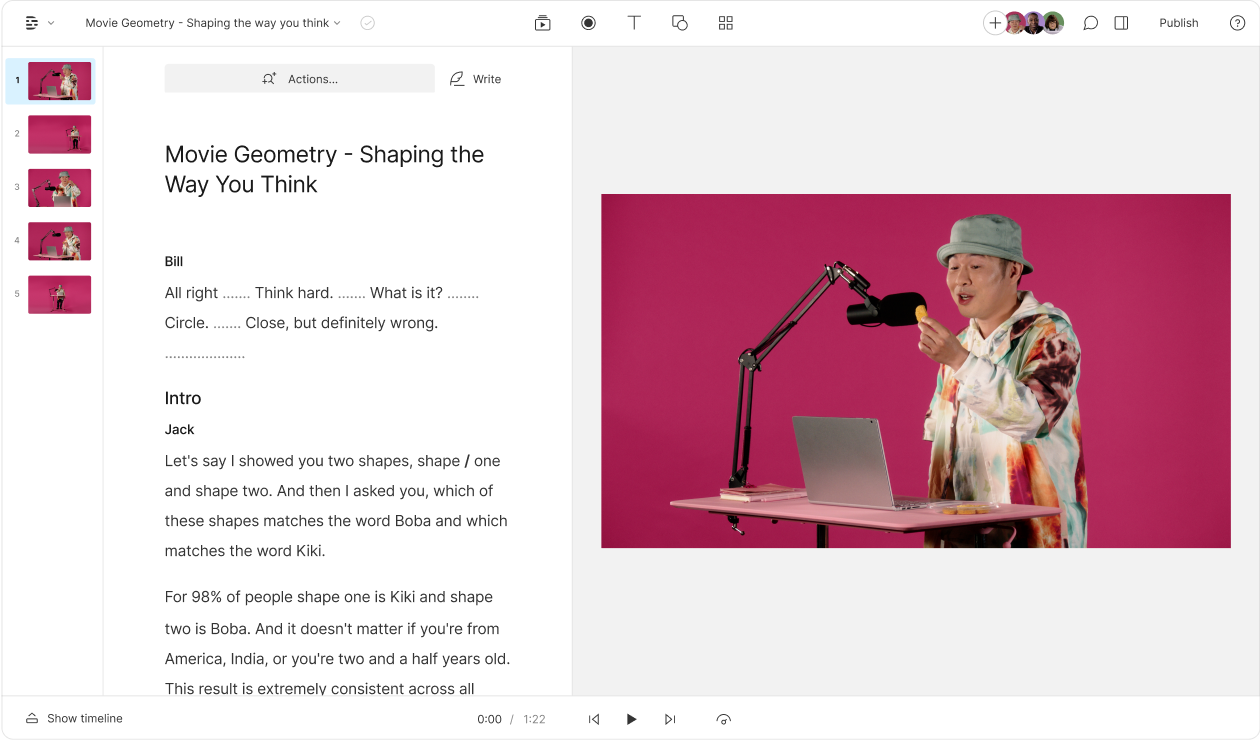What type of content do you primarily create?




Briana Brownell is a podcaster, a data scientist, and a writer of science fiction, scholarship, as well as—to our immense good fortune—a writer for this blog.
For much more than a year she’s been investigating the best ways to use new AI tools in creative work, and lavishing her insights and discoveries on us. She keeps up with the latest academic research, is quick to dive into new tools as they hit the market, and always puts theory and scholarship to test in her own creative process.
We wanted to take a step back and talk to Briana about how she’s using AI tools outside of her research and testing, how AI is working and not working for her, and where she thinks all of this is heading.
Here’s some of our conversation, edited for clarity and concision.
Start by telling us how you’re using AI in your creative process these days.
I use it for absolutely everything I can. I always have multiple ChatGPT windows open. I've got Perplexity open. I've got Claude Sonnet open. And I'm basically trying to use all of these tools for as many things as I can.
Intense! Where do you find them most helpful?
The thing I really like is using AI for ideation and trying to figure out exactly what I want to say in an article, or like, what the point is. And so I use it for that quite a bit. And I also use it for giving me feedback: How could I word this in a better way? How could I make this more succinct? How could I make it clearer? And I find that really useful because sometimes you write this big, bulky sentence and your point is obscured because it's too complicated and the AI tools can really help you make it flow better.
I've got a bunch of custom instructions that are creativity-focused that will generate ideas. I wrote about the Kismet instruction. I also have a number of others. And so as a matter of course, as I'm working it will inject new ideas into the conversation; 95 percent of the time they're not that useful, but the couple of times they are useful, they can really change the way I’m thinking about what I’m working on. It can push me in a direction that's really interesting that I wouldn't have necessarily thought to go on my own.
Of the 5 percent you find to be useful, is it instantaneous—the AI gives you an idea and you take it? Or is it more like, it gives off a spark when you clack it together with your own ideas?
Usually you can tell how useful it is right away, but not always. I've had a time where I was ideating with ChatGPT about topics for a podcast. It suggested a bunch of ideas, and there was one that I thought wasn't that interesting. But as I started digging into it, it kept giving these little sparks of insight. I could link that with some of the things that I know are happening in the broader culture. So it's not that the tool is really giving you the spark—it's giving you something that has the potential to make a spark in your own mind.
Are there potential AI uses you’ve tried and abandoned because either the AI wasn’t there yet, or it just didn’t work for you?
In writing, the biggest thing is getting to that really tight argument, that throughline, and it doesn’t do a very good job of that. Because it doesn't understand the concept of a logical flow through text. If you say “Hey, ChatGPT, write me an article,” what you get will seem really random—the paragraphs won’t logically relate to each other. It will just feel like pieces that are strung together. So it's almost not worth trying.
In fact I find it frustrating trying to get it to do any more than a sentence or two because it won't link it together in the way that makes sense to a human reader.
Do you think AI will learn to write a cohesive, well-reasoned article?
I think you, the human, are always going to have to do it because at the end of the day, you’re writing an article because you have something that you want to communicate. That’s the point. The exact words you use can change, but you need to know what that throughline is.
It’s like when I do a keynote talk or a presentation. I have my notes, which are basically just transitions—that’s the throughline, and then all the stuff that I talk about in each slide flows naturally from those. Because at the end of the day, when you're doing a presentation or writing an article, bringing someone along from the beginning to the end logically is the most important part. You want to bring people along until they say “Oh okay, now I understand.” So I can let AI help me with words, stats, facts*—but the throughline needs to come from me.
* Don't forget to double-check those facts with external sources, though.
What common mistakes do you see creatives make when they’re trying to work with AI?
The biggest mistake I see is people giving up too early. They’ll start by trying to use it for something it isn’t good at and then when it’s not good they’ll say, “Well, it's not useful for anything.” And I think that's a real mistake.
I think that where I've found a lot of value is trying it on many different kinds of use cases. Sometimes it works, sometimes it doesn't. That’s helped me see that sometimes I need to do a better job of prompt engineering in order to get the result that I want, but then sometimes it's just the tool itself isn't at the level that I need it to be for the task I want it to do. Knowing the difference is tough, and it's really just experience with the tools that will get you there.
At Descript we like to go around saying “AI can generate, but only people can create.” But how do you figure out where the line is? How do you ensure you don’t let AI lead you into creating something just generic slop?
To me, it's all about finding what I call your creative core. If you're a creator and you want to make something, what is at the core? What is the part that, if somebody took it away, you would feel that you didn't create anything? Whatever that is, you have to do it yourself. And for everything else, try the AI tools to see if they can augment your creative core.
A lot of times I want to research a topic because I'm world-building for a science fiction story I'm writing. And I want to quickly summarize the academic thought on that topic I'm going to use in this story. That's not part of my core. It's something that makes it easier for me to get farther, faster in my work.
Or maybe it's taking all of my notes and organizing them into categories, making them more concise. Maybe it's taking something messy that I've written some ideas down and turning it into like a really crisp logline.
It’s different for everybody, and it's different for every project. Some people are really specific about making sure that their phrasing and writing is in a specific voice and a certain style. So that's part of their creative core. They would never want an AI tool to move the words around in their sentences. For me, it doesn't matter what the exact wording is as long as the ideas are communicated clearly, so that’s not part of my creative core.





























%201.svg)








